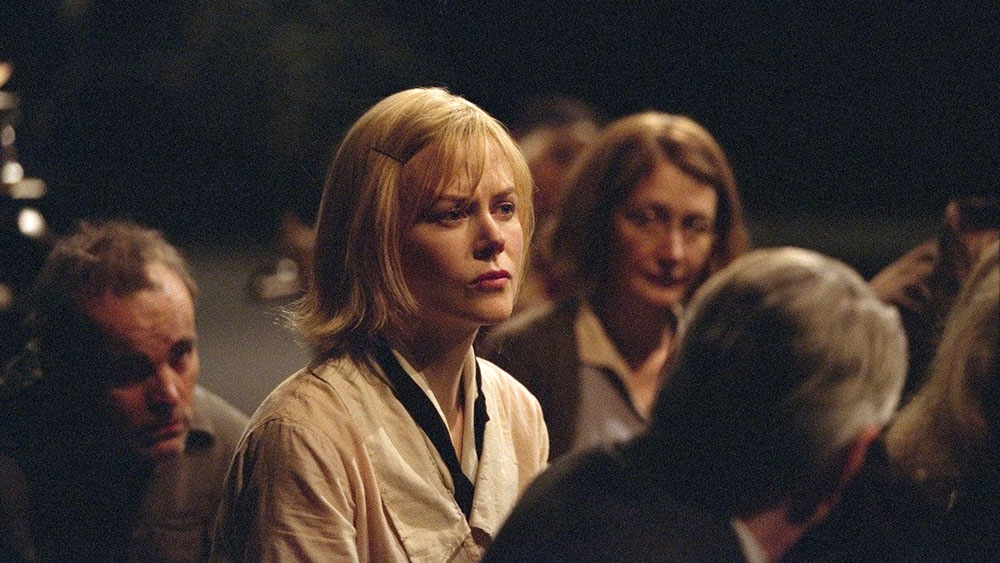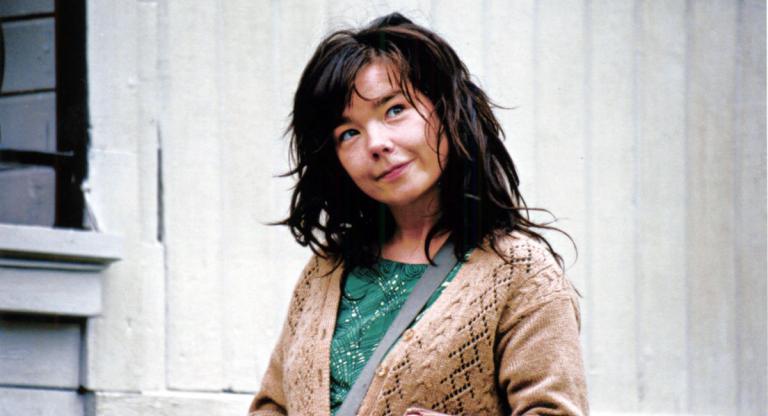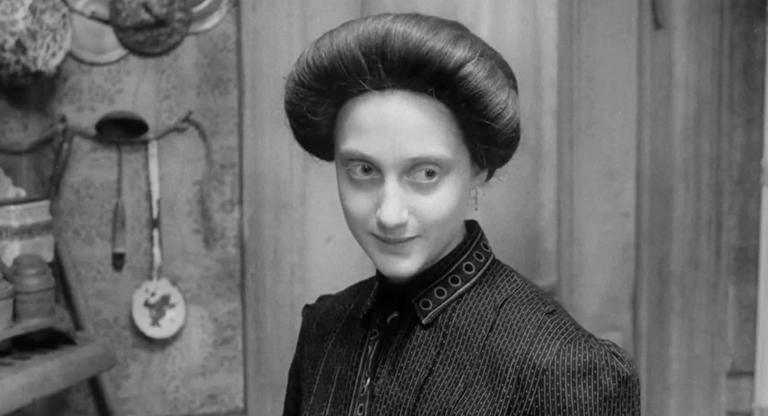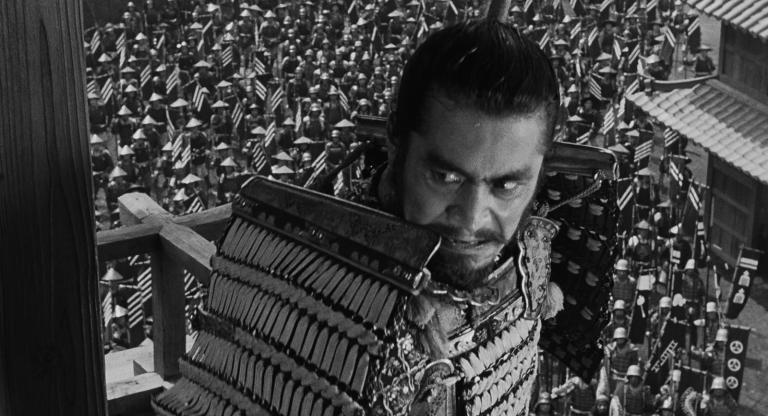Set in the midst of the Depression, Dogville (2003) is an engrossing account of the machinations of human behavior in a town “rotten from the inside out.” Provocateur and bard of anguish Lars von Trier maintains a core aspect of his preceding films, like Dancer in the Dark (2000)—a vulnerable woman, scorned and judged by a skeptical society—but rewires the trope into a scorchingly poignant parable of American ideals and values, where notions of justice and morality, arrogance and empathy, become disturbingly enmeshed.
Fleeing mobsters in Model Ts, a beautiful urbanite (Nicole Kidman) finds refuge in an isolated township at the foot of the Rocky Mountains. With the help of the resident philosopher and aspiring writer (Paul Bettany), she ingratiates herself with the dozen locals, only to find herself subjected to the pendular whims of their mercy and malice. A glut of talent, the film’s eclectically stacked cast—Chloe Sevigny, Lauren Bacall, Patricia Clarkson, Philip Baker Hall, Stellan Skarsgaard, Ben Gazzara, and others—limns a picturesque tight-knit community and the ripples of small-town groupthink.
Moving past the constraints of Dogme 95, von Trier sets another challenge for himself by filming on a spartan stage of schematic floor plans, and satisfyingly renders the artifice of theater into the stuff of cinema with a Brechtian bent. The austere scenery and scant set-dressings (“gooseberry bushes'' chalked and labeled on the floor)—parallel the settlement’s modest standing, while simultaneously catalyzing our attention and dialing up the drama. In this regard the HD video camera snakes around with omniscience, magnifying the actors’ performances while a fanciful lighting design mimics the sun, catching dandelions and snow twirling about with the changing of seasons. The lack of physical walls establishes a sense of exposure, becoming a sick joke about transparency and scrutiny as relations sour.
There’s a mesmerizing stillness to the perfectly calibrated film, which at 178 minutes moves with Swiss precision and is sustained by Kidman’s performance. Not a single line of dialogue in the voluble script is superfluous or overbearing. Dogville is often torturously funny—thanks to the articulate and glib narration by John Hurt, who relays the solemn tale with the leisurely rigor of someone buttering toast.
There are hints to Dogville’s rotten qualities from the start: it’s a town that doesn’t vote, awaiting a new minister who never arrives, a place where religion and democracy have failed to take root (coupled with the Rocky Mountain setting, the story also invokes the New Testament Parable of the Sower). The comfortable fabric of the town frays, succumbing to the corrosive sway of opportunism when the citizens of Dogville suggest some “quid pro quo” for their efforts harboring Grace. Like von Trier heroines past, and those that follow, Kidman’s character is brutalized and abused, though the onscreen depictions are not themselves exploitative, far less extreme than what can be seen on any of today’s prestige television serials.
Her suffering reaches far beyond the body, and the film’s emotional impact on the viewer relies on its depiction of psychological violence—incremental shifts in behavior, modulations of contempt. A seductive cocktail of crushing cynicism, Dogville plays like Au Hasard Balthazar and the Stanford prison experiment mixed with the tunes of John Wesley Harding. Given today’s ongoing parade of demoralizing societal disasters, the original criticisms of Dogville’s anti-Americanness and excessive misanthropy appear quaint. The Danish director has rightly crafted a nihilist and poetic assessment of our times. You may not like what he has to say, but it’s getting hard to argue he’s wrong.
Dogville screens tonight, May 31, and throughout the week at the Roxy in a new digital restoration.




